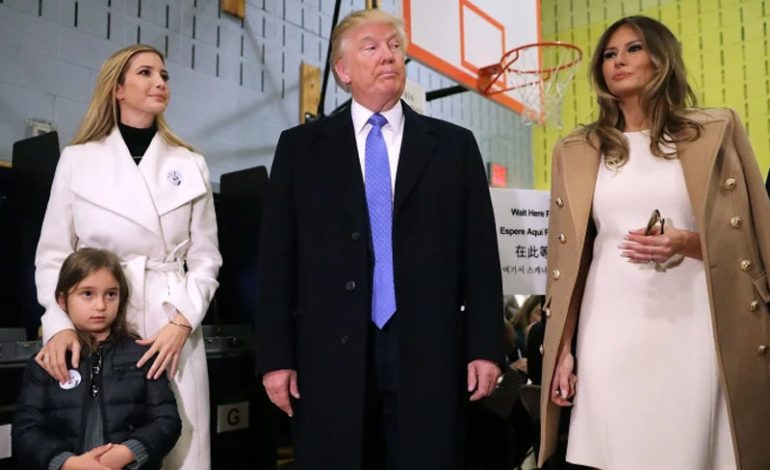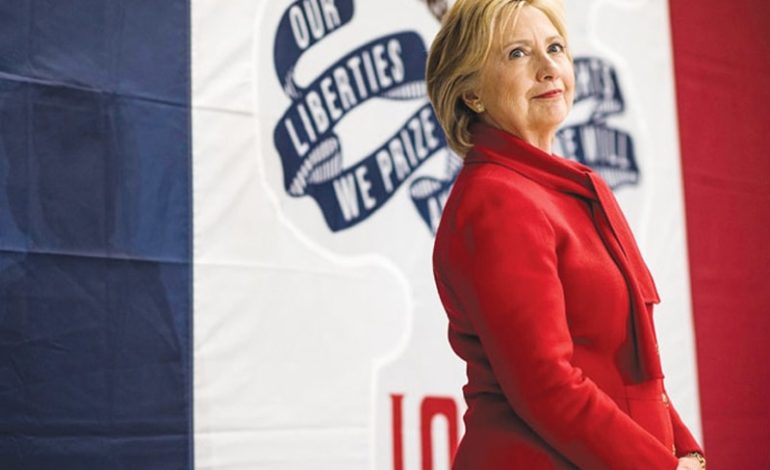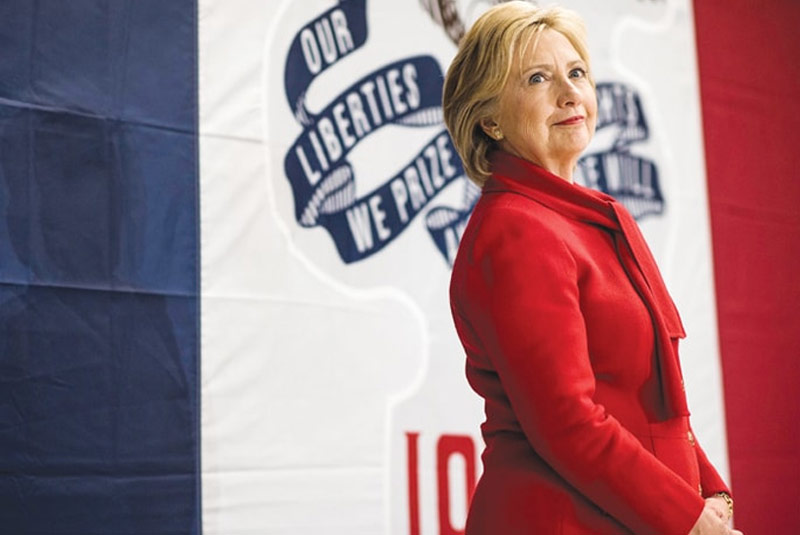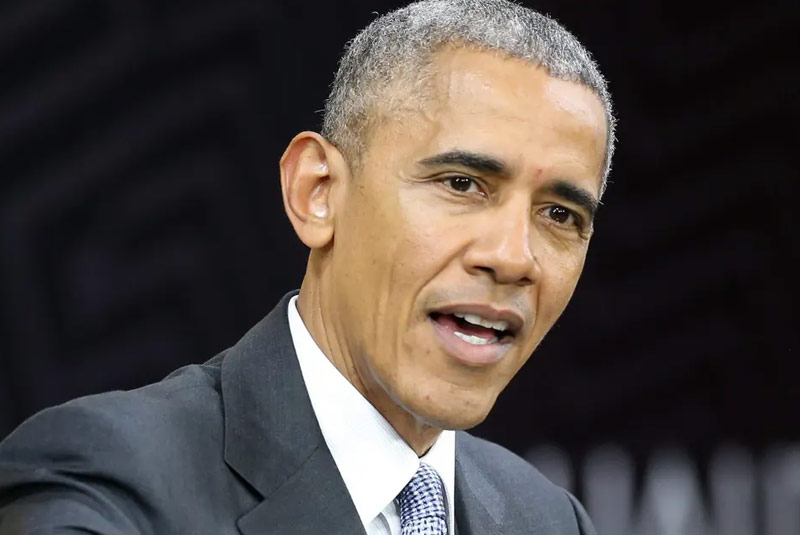Trump’s Rough Transition Start

The good news for Donald Trump is that he will become the 45th president of the United States in January. The bad news is that his surprise victory last week has done little to mask many of the GOP divides — over his policy positions and style — that existed throughout the election season. Consider all of these different storylines during the first week of Team Trump’s transition to the White House:
Former Rep. Mike Rogers (R-MI) resigned from Trump’s transition. “Two sources close to Rogers said he had been the victim of what one called a ‘Stalinesque purge,’ from the transition of people close to New Jersey Gov. Chris Christie, who left Friday,” per NBC News.
One source told CNN that the transition was turning into a “knife fight.”
A front-page New York Times story this morning outlined how foreign leaders are “scrambling to figure out how and when to contact Mr. Trump” (a charge Trump denied on Twitter this morning) and how top donors are having “little success in recruiting people for rank-and-file posts in his administration.”
Former Bush administration official Eliot Cohen, a Trump critic, tweeted, “After exchange w Trump transition team, changed my recommendation: stay away. They’re angry, arrogant, screaming ‘you LOST!’ Will be ugly.” (Cohen later told the Times that the Trump team thinks of top administration jobs as “lollipops.”)
Vice President-elect Mike Pence ordered the removal of all lobbyists from the transition team, the Wall Street Journal reported.
Sen. Rand Paul (R-KY) said he would oppose John Bolton as secretary of state, and possibly Rudy Giuliani too, which could prove problematic in a 52-48 GOP Senate.
Politico reported on foreign money — from governments and companies — that Giuliani has earned, which could be a conflict of interest.
And Sen. John McCain fired off this statement about any improved relations with Vladimir Putin: “With the U.S. presidential transition underway, Vladimir Putin has said in recent days that he wants to improve relations with the United States. We should place as much faith in such statements as any other made by a former KGB agent who has plunged his country into tyranny, murdered his political opponents, invaded his neighbours, threatened America’s allies, and attempted to undermine America’s elections.”
Trump, for his part, has tweeted several times in the last 12 hours that the transition has been orderly. “Very organized process taking place as I decide on Cabinet and many other positions. I am the only one who knows who the finalists are!” he wrote last night. All this isn’t to say that the Trump transition — or his upcoming presidency — is doomed. Far from it. If last week taught us anything, it’s that many of us have underestimated Trump. But one week in, this is hardly some harmonious honeymoon, especially inside the GOP.
Cabinet watch
NBC News is tracking the names that have been floated so far for the top jobs in Trump’s administration. Here’s the running list of possible candidates we’ve been hearing about so far; we’ll continue to update it as the president-elect’s team makes its choices final.
Secretary of State: Rudy Giuliani, John Bolton, Bob Corker
Attorney General: Giuliani, Jeff Sessions
Treasury: Steve Mnuchin, Jeb Hensarling
Defense: Sessions, Jim Talent, Tom Cotton
Homeland: Michael McCaul
Interior: Sarah Palin
HHS: Ben Carson (adviser says he’s declined)
Education: Carson (adviser says he’s declined)
Commerce: Lew Eisenberg, Linda McMahon
Transportation: John Mica
Agriculture: Rick Perry, Sid Miller
CIA Director: Devin Nunes
UN Ambassador: Richard Grenell
National Security Adviser: Michael Flynn
RNC Chair: Ronna Romney McDaniel
Trump vs. the Press, again
It’s not unusual for presidential campaigns and administrations to argue with the press about access, but last night’s battle over Trump giving reporters the slip was eyebrow-raising. NBC’s Ali Vitali and Alex Jaffe write: “In a highly unusual move, President-elect Donald Trump on Tuesday night left his Manhattan residence without notifying the reporters covering him or giving any indication of where he was going. The maneuver seemed to deliberately limit access to the media… This came after Hicks had told his press pool the day had ended, and the only indication of his departure was an unannounced motorcade. Trump’s communications team did not respond to emails from the pooler requesting guidance.” Okay, we get it: It’s hard to get fired up about a man deciding to have dinner with his family without a bevy of reporters in tow. But the most fundamental purpose of the protective pool is to be present to document an unexpected emergency or catastrophic event that could involve the president of the United States. (Remember the outcry about the Clinton team’s media blackout during the Democratic nominee’s health scare this fall?) Trump’s not the president yet, and his team acknowledges that it is still working out the kinks in how it handles reporters. But if they continue to ignore the traditions of press access, it’ll mean further additions to a list of norms Trump has dismissed. And that list has been getting very long already.
The one-two punch that beat Hillary Clinton
It’s incorrect to say that Rural America was the reason that Donald Trump won and Hillary Clinton lost a week ago. It’s also incorrect to say the reason was declining Democratic turnout. The CORRECT answer is that it was both. Just look at the numbers our colleague Dante Chinni crunched by looking at the vote totals from his American Communities Project, which categorizes different American counties. Chinni’s four different types of Rural America counties produced 500,000 more votes than they did in 2012, even though some of them have lost population since 2010. And Trump won those counties by a significantly bigger margin that Mitt Romney did.
By contrast, Urban America saw its turnout decrease, even though Clinton won these kinds of counties by a slightly larger margin than Barack Obama did in 2012. (Caveat: Some of this vote is still coming in from the West Coast.)
Clinton also lost the Middle Suburbs
There’s one other component to Trump’s win and Clinton’s defeat that’s important to the story: Clinton lost Chinni’s “Middle Suburbs” — counties outside of large cities that have large white populations with average median incomes. Examples include Macomb County, MI, Lake County, OH, Saginaw County, MI, which Obama either won or narrowly lost in 2012.
NSA Director: WikiLeaks a “conscious effort by a nation-state to attempt to achieve a specific effect”
Don’t miss this from the Wall Street Journal’s CEO Council: NSA head Adm. Michael Rogers said plainly yesterday that the WikiLeaks hacks happened because “a nation-state” hoped to influence world events. “This was not something that was done casually. This was not something that was done by chance. This was not a target that was selected purely arbitrarily. This was a conscious effort by a nation-state to attempt to achieve a specific effect,” Rogers said. While he didn’t specifically name Russia in his remarks yesterday, that’s a pretty striking comment coming a week after Election Day.
Democrats delay House leadership elections
We asked yesterday if House Minority Leader Nancy Pelosi would keep her job in the wake of a very tough election cycle for her party. Now, NBC’s Leigh Ann Caldwell and Alex Moe have the latest on House Democrats persuading her to delay leadership elections: “While Pelosi appears to have the support of her caucus overall, many members want to slow down and discuss the election results and what the party has done wrong to lose so soundly – especially among working class voters that the party thought it spoke to. The leadership vote was originally slated to take place on Wednesday. And a lengthy delay could give time for a significant challenger to arise. One possible name that has been floated is Rep. Tim Ryan of Ohio, who has not ruled out a potential challenge.”
Everything you wanted to know about the upcoming DNC chair election but were afraid to ask
NBC’s Alex Seitz-Wald breaks it all down:
When will election be held? No date has been set yet, but will be early next year (DNC Charter calls for before March 1) Interim Chair Donna Brazile has said she will not seek another term.
How will the next chair be elected? A majority vote of the Democratic National Committee, which consists of about 400-500 members, including each state party chairs and one vice chair from each, 200 elected members, and very long list of other people representing various groups.
Split DNC Chair in two roles? Many in the party have floated returning to the model used under Bill Clinton, when there were two chairs — one figurehead and one behind-the-scenes operations person.
Is field finalized? No. And DNC members are being told to keep their powder dry as others could join, now that there’s no Dem administration to populate.
Declared Candidates:
Rep. Keith Ellison – Progressive backed by Bernie Sanders, Chuck Schumer, Harry Reid, and many others. Strengths: Early frontrunner thanks to endorsements. Af-Am and Muslim. Newer generation. Weaknesses: Sitting member of Congress, so chairmanship would not be his full-time job unless he resigned seat. Supported Sanders in primary, alienating some Clinton-supporters. Not a favorite of Obama WH. Announced Monday, was on w/Chris Hayes.
Howard Dean – DNC Chair from 2005-2009. Strengths: Has done job before to rave reviews, especially his “50-state strategy.” Would be full-time chair. Weaknesses: Has done job before, desire for someone new and person of color/woman. Middle-aged white male. Announced last week on Twitter.
Former MD Gov. Martin O’Malley – Strengths: Chaired Dem Gov. Association, “big” name, good on TV. Weaknesses: Poor showing in presidential race. Ideological baggage: Policing tactics as Baltimore mayor alienated BLM activists, chaired centrist Dem group DLC. Middle-aged white male. Announced in statement last week.
SC Dem Chair Jaime Harrison – Strengths: Young, Af-Am from important primary sate. State parties have major power in DNC elections, and have tentatively agreed to vote as a bloc. Weaknesses: Unknown nationally. Works for lobbyist Podesta Group. Announced on Maddow Monday.






